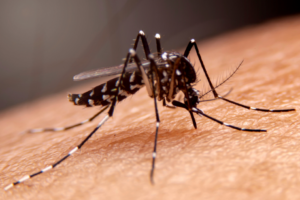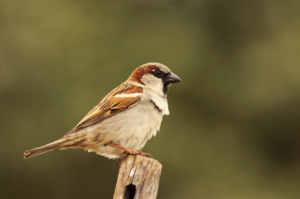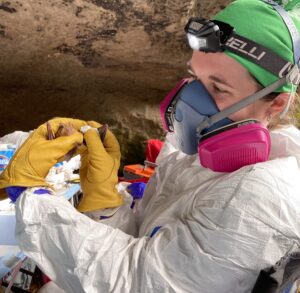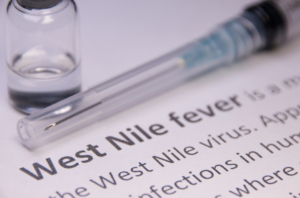Student One Health Awards
The CSU One Health Institute funded four Student One Health Award projects for the first time in 2024. These awards support student research to implement a One Health project that addresses an issue at the interface of humans, animals, plants and the environment.
These student awards will support student research projects toward their degree and provide students with experience writing, managing and reviewing grants. Students who succeed in this funding period will review awards submitted the following year.

Investigating Mosquito Dispersal and co-breeding in Ethiopia
The recent arrival of the Asian mosquito species, Anopheles stephensi, in the Horn of Africa may have been facilitated by urban growth, environmental shifts, and increased global connectivity. This new presence carries serious implications, potentially upsetting local ecosystems and raising health risks for both people and animals. An. stephensi mosquitoes often breed alongside Aedes mosquitoes, which spread diseases like dengue and yellow fever, suggesting an opportunity to tackle both types of mosquitoes with the same control methods.
This project aims to understand why An. stephensi and Aedes mosquitoes are spreading in Ethiopia, targeting their breeding sites more effectively. An. stephensi can carry malaria and chikungunya virus, posing a threat to disease control efforts. By using advanced techniques to track mosquito movements and assess environmental influences on their spread, researchers aim to provide valuable insights for developing sustainable mosquito control strategies in Ethiopia. These findings will inform policymakers and health officials to guide the implementation of effective control measures.
Researcher:
Sabrina Gobran, PhD. Student
Graduate Research Assistant, Microbiology, Immunology, and Pathology
College of Veterinary Medicine and Biomedical Sciences
Colorado State University
Advisor:
Elizabeth Hemming-Schroeder, Ph.D.
Assistant Professor, Microbiology, Immunology, and Pathology
College of Veterinary Medicine and Biomedical Sciences
Colorado State University

Developing Oral Avian Vaccine for WNV Transmission Control
This project aims to develop and assess a strategy to reduce West Nile virus transmission by targeting birds, the main reservoir of the virus, with an orally administered recombinant probiotic WNV vaccine. The vaccine will utilize a probiotic bacterium called Lactobacillus acidophilus (rLA) as a delivery platform, as it has been successful in vaccinating birds against different diseases. It can be freeze-dried and mixed with birdseed for non-invasive administration to susceptible wildlife.
Researchers will create a construct of the probiotic that expresses WNV antigens, aiming to trigger positive immune responses in model bird species.
Researchers will measure birds’ immune responses to WNV exposure to evaluate the vaccine’s efficacy. The team hopes to disrupt the transmission cycles between mosquitoes and birds to provide an alternative to traditional insecticide-based mitigation strategies.
Researcher:
Michelle Savran, DVM/PhD. Student
Graduate Research Assistant, Microbiology, Immunology, and Pathology
College of Veterinary Medicine and Biomedical Sciences
Colorado State University
Advisors:
Brian Foy, Ph.D.
Professor, Microbiology, Immunology, and Pathology
College of Veterinary Medicine and Biomedical Sciences
Colorado State University
Gregory Ebel, Sc.D.
Professor, Microbiology, Immunology, and Pathology
College of Veterinary Medicine and Biomedical Sciences,
Director, Center for Vector-Borne and Infectious Diseases,
Colorado State University

Understanding Bat Diets for Virus Transmission Prediction
Diet significantly influences animal behavior, dictating their movements and interactions with other species. Understanding the diets of viral reservoir species, such as bats, is crucial for assessing the risk of disease transmission. In Uganda’s Mount Elgon region, various bat species have been found carrying coronaviruses and other viruses. Fecal samples have been collected from these bats to study their diet, but researchers hypothesize that many of the plants and insects found in these samples have not been genetically sequenced before, making identification challenging.
This study aims to create a database of genetic information from local plants and insects in the Mount Elgon region to accurately identify the components of bat diets. With this data, researchers will develop a model to predict bat foraging behavior across the landscape. By combining this model with viral surveillance data and land-use maps, previously unrecognized areas of nocturnal bat activity in human settlements can be identified, aiding in disease prevention efforts.
Researcher:
Kalani Williams, Ph.D. Student,
Microbiology, Immunology, and Pathology
College of Veterinary Medicine and Biomedical Sciences
Colorado State University
Advisor:
Rebekah Kading, Ph.D.
Associate Professor, Medical Entemology, Microbiology, Immunology, and Pathology
College of Veterinary Medicine and Biomedical Sciences,
Colorado State University

Leveraging Data for Comprehensive WNV Surveillance
Fort Collins is hot spot for West Nile Virus in the United States, prompting efforts to establish a robust surveillance program. Despite the wealth of available data from positive mosquito samples, much remains untapped. This project aims to harness this data to analyze the emergence and persistence of new WNV strains in the area, pinpointing areas for targeted control measures and understanding WNV spread. The research team will develop a method to track WNV strains’ movements over time and space, distinguishing between short-lived and long-lasting strains.
Once persistent strains are identified, computational models will examine associated weather patterns, land types, and geographic locations. Experimental analysis will measure strain characteristics, pinpointing the factors driving WNV introduction and persistence in Fort Collins. This interdisciplinary approach aims to provide insights for control strategies and enhance understanding of WNV spread.


